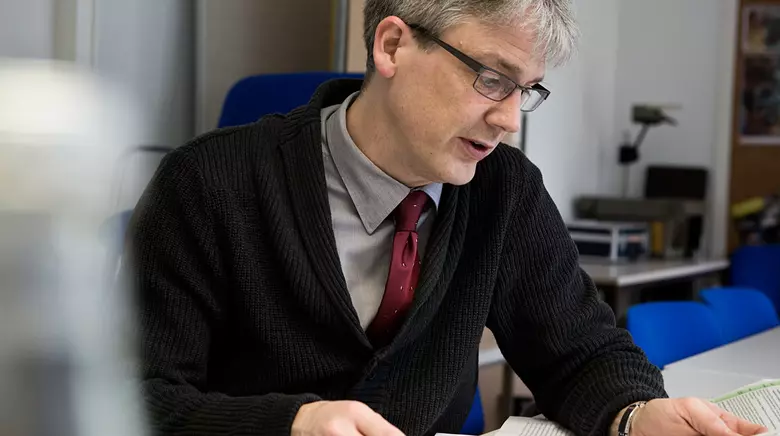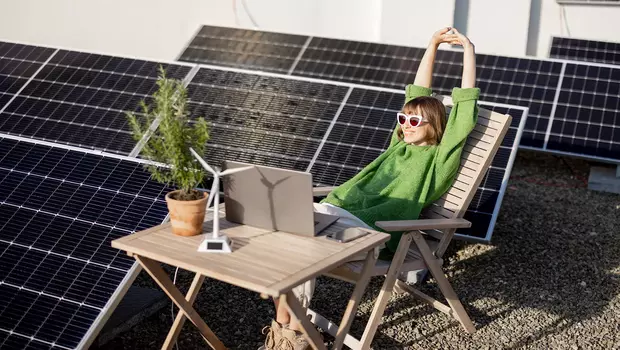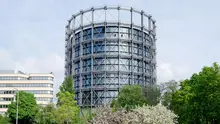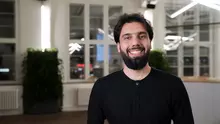Sustainable Work vs. Working for Sustainability: Here are the differences – an interview with Krischan Ostenrath
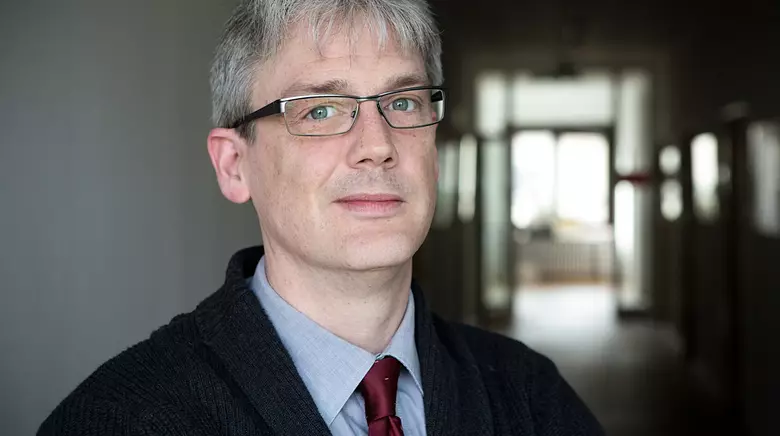
Berlin is a city that embodies sustainability on many levels. Whether it’s the promotion of green technologies, the development of sustainable buildings or the pursuit of urban mobility concepts – the capital is raising the bar. But what does sustainability actually mean in the world of work? How can professions be designed to ensure sustainability in the long term? And what is the difference between “working for sustainability” and “sustainable work”?
Krischan Ostenrath is one of Germany’s leading voices on this topic. As Head of the Labour Market Department at Wissenschaftsladen Bonn (WiLa) and Coordinator of the Netzwerk Grüne Arbeitswelt, he has decades of experience in the targeted networking of companies and skilled workers. He collaborates with German ministries, companies and scientific institutions to prepare studies and strategies that seek to recruit workers to the cause of sustainability and to increase satisfaction on both sides – among employers and employees.
But despite growing attention, there are still misunderstandings about sustainability in the labour market. Our interview with Krischan sheds light on some key issues: How do you recognise a sustainable job? Where can I find these jobs? And which aspects are important when selecting a profession if you want to make consciously sustainable decisions? Learn from a genuine expert how sustainability is transforming not only the world of work, but also opening up new opportunities.
What does “sustainable work” mean to you?
Sustainable work is more than just a buzzword – it describes a balanced relationship between ecological, economic and social aspects in the workplace.
Hallmarks of a sustainable job include fair pay, good working conditions, an inclusive corporate culture, environmental governance and diverse career opportunities.
In a nutshell: A job in environmental protection is not necessarily sustainable if the working conditions are poor. For example, there used to be a high proportion of temporary work in the wind energy sector – and these employment relationships are not truly sustainable. But still, everyone decides for themselves which factors matter to them.
What does “working for sustainability” mean to you?
Working for sustainability means using your own professional skills specifically in the interests of climate protection. This is possible in almost every professional field – from urban planning to IT and farming.
Let me quote one example: As a retail specialist, you can decide whether you want to work for a fast fashion company or a sustainable fashion label. The tasks are similar, but the impact on the environment is completely different.
What role does sustainability play in your choice of job?
One thing is certain for me: I want to work at an organisation that embraces social and environmental responsibility. At the Science Shop (WiLa), I find an open, diverse environment in which women outnumber men – something that I find enriching. As an NGO, we maintain democratic organisational structures and actively contribute to protecting the climate and environmental. These values and structures influenced my career choice decisively.
Can you name any professions that do not appear “green” at first glance, but still contribute to sustainability?
There are no evidently “green” professions – only activities that can contribute to sustainability. Your own professional qualifications decide where you can make a difference.
For example: A person with communication skills can work in the PR department of a renewable energy company or in a traditional advertising agency. Bankers can choose between sustainable and conventional financial institutions.
It is important to ask yourself the question: Where can my skills make the biggest impact?
Where do the misunderstandings about sustainable jobs come from in your view?
There are two perspectives: that of the employees and that of the employers.
Employees often underestimate the fact that the climate and environmental protection sector is primarily looking for skilled workers and not people who, for example, prefer to ride a bike rather than drive a car. Without a sound education or a degree, it is difficult to make any real difference for the climate and the environment.
Employers, on the other hand, often rely on green branding to attract skilled workers. But superficial marketing is a bit like window dressing, and the younger generation is particularly cautious. Sustainable jobs must cover all dimensions – so ecological, economic and social.
How do you think these misunderstandings can be resolved?
The following is true for employers: Authentic communication is crucial. Speak openly about the status of your sustainability strategy and create an attractive framework.
Employees should be bold and inquisitive enough to try their hands at different professional fields. Internships are an ideal way to get to know professions and get some realistic insight.
Where can specialists find jobs for sustainability in Berlin?
Berlin offers numerous opportunities. Large environmental organisations like the BUND or Greenpeace, specialised companies like Ökofrost or i+m natural cosmetics and educational institutions such as Life e. V. are just a few examples. Then there are foundations like the Berlin Nature Conservation Foundation or the ClimateEconomy Foundation (Stiftung KlimaWirtschaft) that offer exciting opportunities, along with professional associations such as the Zentralverband Gartenbau e. V..
Job platforms are a good place to find your way. Examples include greenjobs or JOB VERDE, which specialise in sustainable careers and “green” jobs. We also recommend taking a look at the Who's Who of the Netzwerk Grüne Arbeitswelt the Federal Association for Sustainable Economy and the Bundesdeutscher Arbeitskreis für Umweltbewusstes Management (BAUM) e. V..
How can specialists recognise a sustainable company?
There is no one-size-fits-all answer, but checklists are a good way to examine important criteria: What is the remuneration policy? How significant is the environmental impact? How inclusive is the corporate culture? Candidates should research this information before applying. Our Sustainable Companies Checklist (German Only) is a valuable resource.
How do you see the future of sustainable professions in Berlin?
The future clearly belongs to environmentally-oriented services and sustainable jobs. I see huge potential, especially in areas such as transportation, urban planning and energy management. In my opinion, Berlin will offer fewer jobs in the area of production and will focus more on development and services. Creating a stable and long-term foundation for these professions will be crucial to retaining talented people in the city.
Thank you for your time, Krischan.

